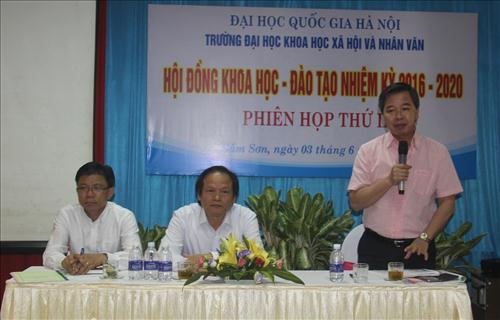
The Council heard Associate Professor Hoang Anh Tuan (Vice Rector of the University) present the main points of innovation in training activities at the University of Social Sciences and Humanities. In recent times, the University has focused on innovating the training process towards a learner-centered approach. The Training Department has coordinated with other units to review and reorganize training processes and schedules to be more flexible and efficient, avoiding wasted time in training. The highest professional responsibility is entirely assigned to the training units, strengthening the role of lecturers, while the Training Department provides technical and procedural support.
In addition, the admissions process has been improved, treating it as a regular activity and diversifying its forms. Procedures related to registration and application submission have also been improved to best serve students, especially by utilizing online resources.
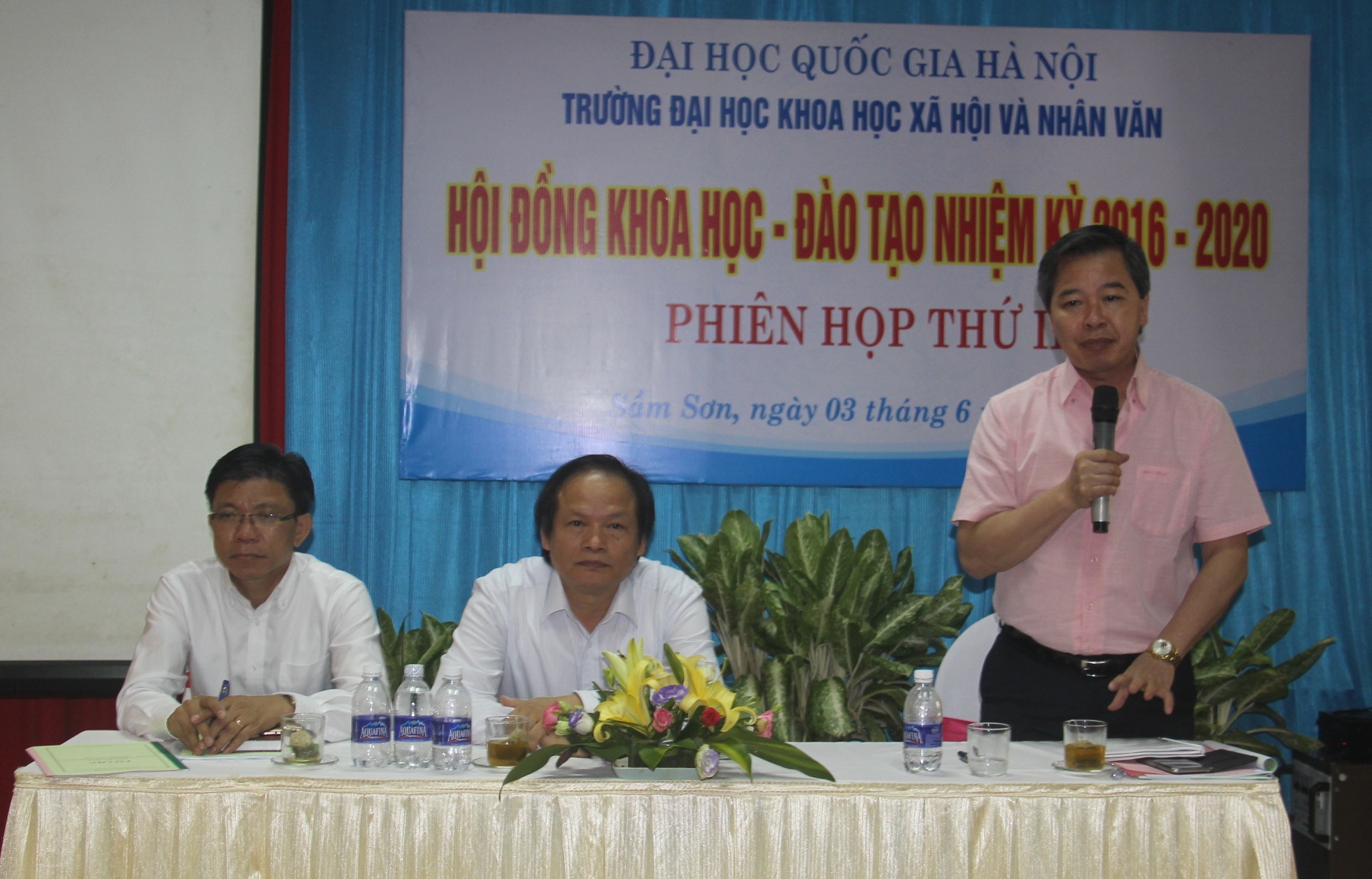
Regarding postgraduate training, the University has also issued a standard training schedule to support students in completing their programs as quickly as possible. The thesis defense process has also been streamlined by removing unnecessary procedures, following a "one-stop shop" approach while still ensuring compliance with the general regulations of the Ministry and Vietnam National University, Hanoi.
The university has also been adjusting its curricula to promote articulation between different majors and specializations, thereby increasing learning opportunities and job prospects for students. The university is also considering the possibility of implementing majors with high social demand through collaboration with member units within the Vietnam National University, Hanoi. Elective courses in the curricula are also being revised to increase their attractiveness to students.
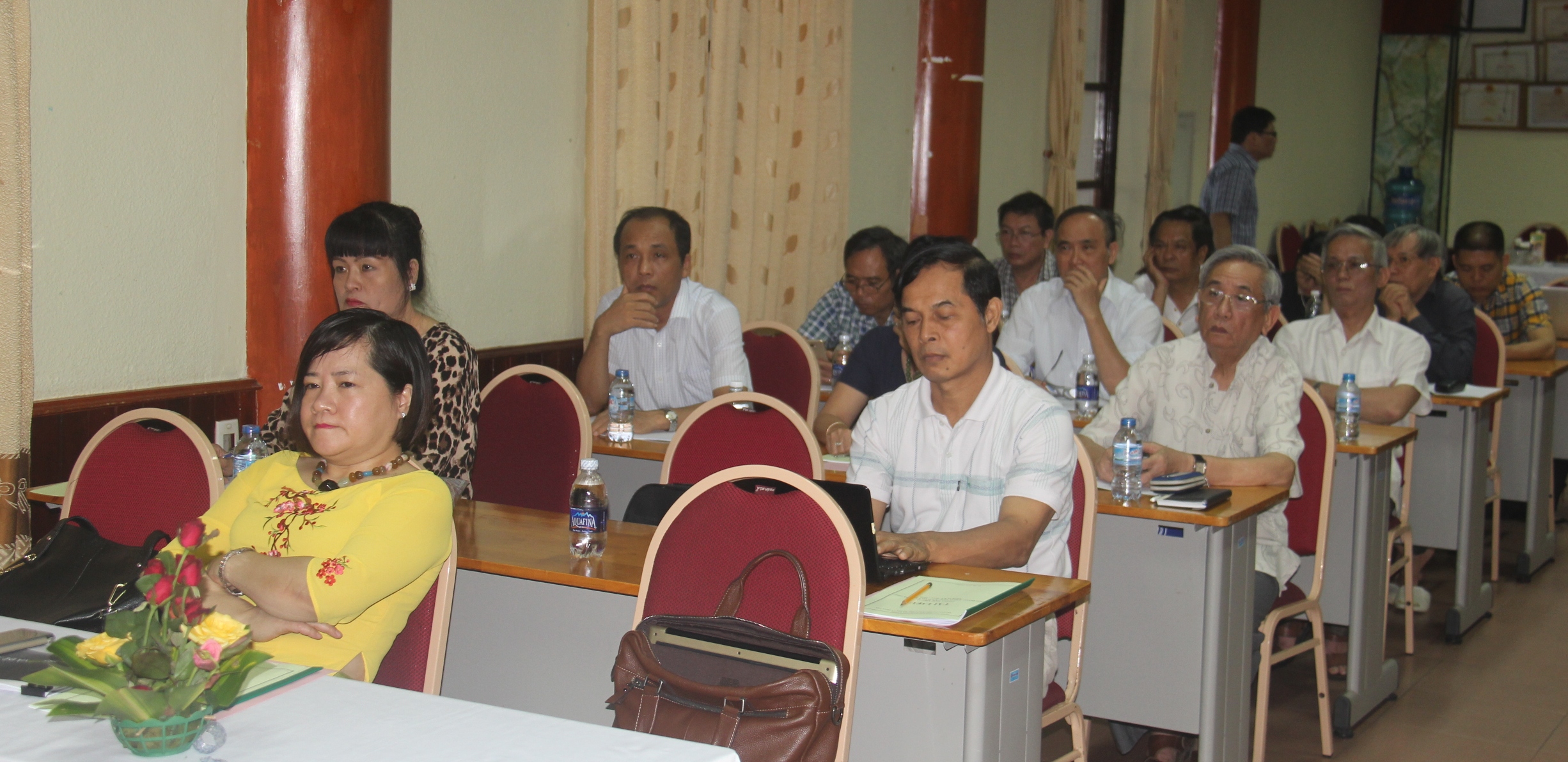
Another key topic discussed at the meeting was solutions to promote international publications in scientific research at the University of Social Sciences and Humanities. Presenting a paper on this topic, Assoc. Prof. Dr. Hoang Van Luan (Head of the Scientific Research Management Department) assessed: In recent years, the University's international publications have increasingly flourished and created a ripple effect among the staff. Between 2012 and 2016, the number of internationally published articles increased from 20 to 42. However, current international publications are still concentrated in a few units such as History, Sociology, Anthropology, Psychology, Oriental Studies, and Sociology. These publications are mainly by individuals rather than products of research groups.
International publication in science is currently considered one of the ways to promote international integration and enhance the capacity of the research team. To achieve this, several recommendations have been put forward, such as: assigning international publication targets to each unit, and eventually to each lecturer and researcher position; linking international publication criteria to salary and bonus priorities; focusing on building strong research groups to create sustainability in international publication; piloting the organization and assignment of joint research programs and projects to research groups aimed at international publication; investing in upgrading the Journal of Social Sciences and Humanities to become a scientific journal of international caliber…
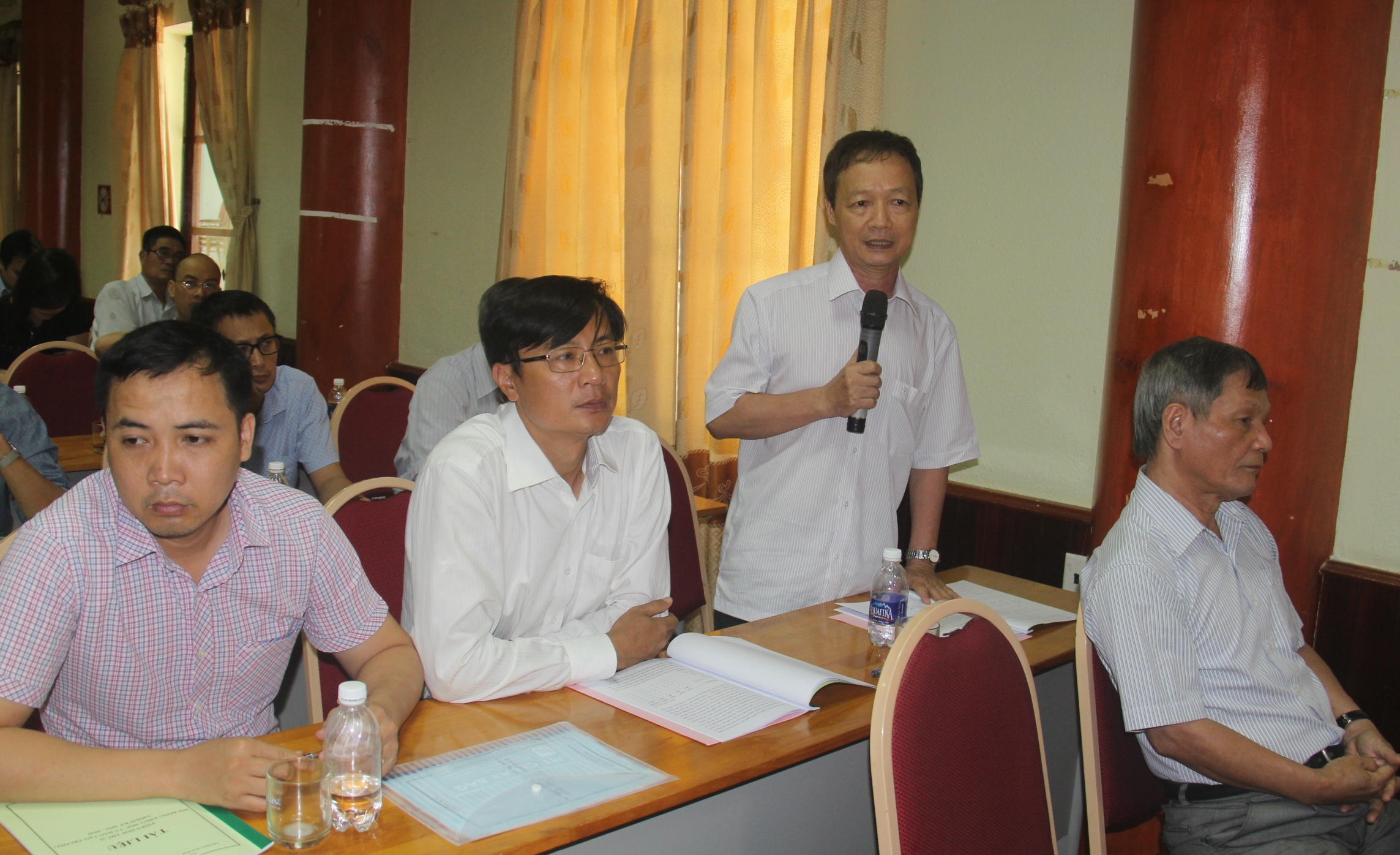
The third main topic discussed at the meeting was solutions to enhance the operational efficiency of the centers within the University. According to the report by Assoc. Prof. Dr. Tran Thi Minh Hoa (Vice Rector of the University of Social Sciences and Humanities), the University currently has 13 centers and 1 affiliated company, including 8 research centers supporting training, 5 centers providing training services, and 1 limited liability company. Currently, in addition to the achievements, the activities of the centers also have limitations such as: the coordination between centers and faculties is still not good, resulting in low operational efficiency; the development orientation of some centers is not linked to the research university model; the number of service-providing centers is not large, and they only provide training services, not scientific and technological services.
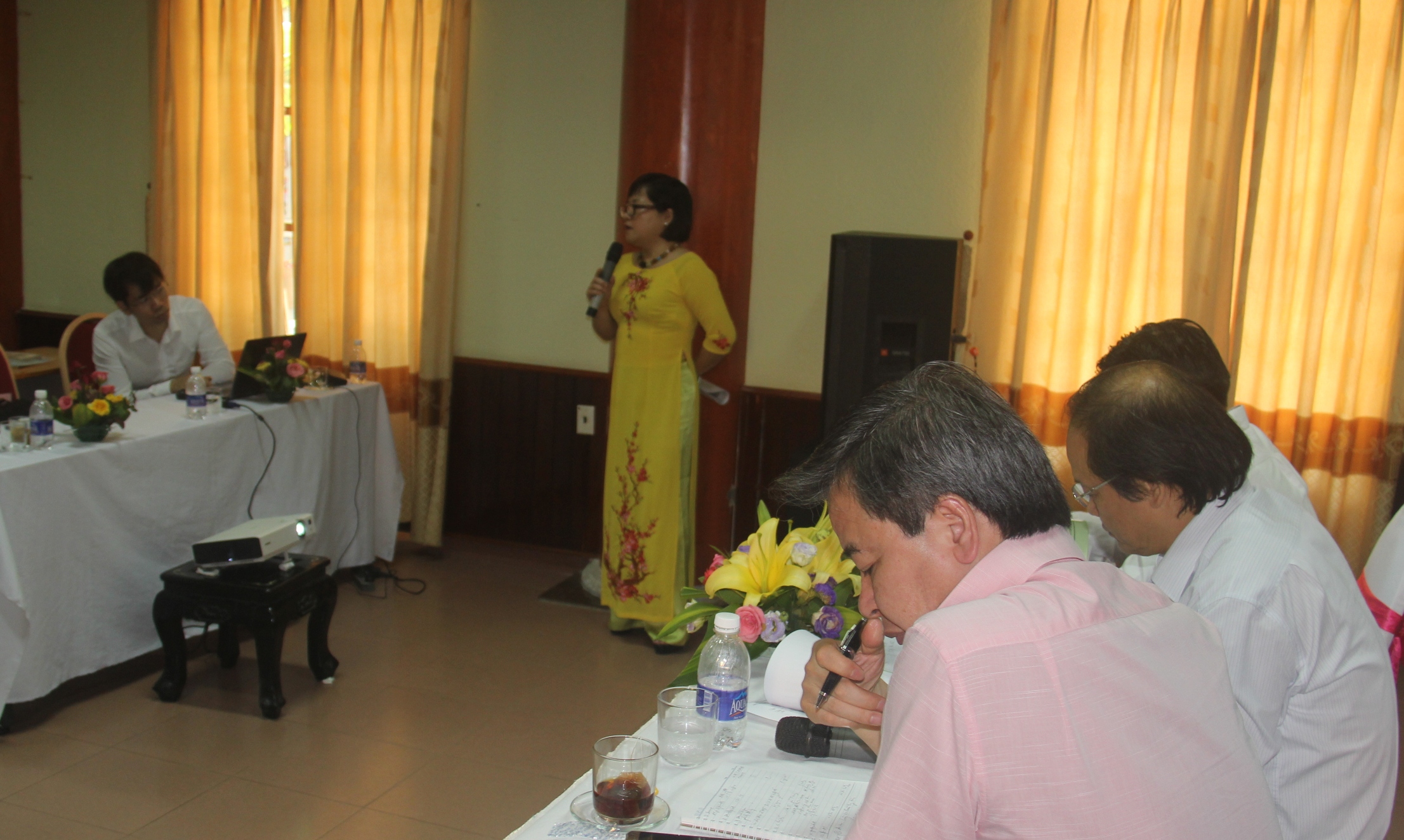
In the context of the university's development towards a research-oriented model, suggestions have been made to reassess the position and role of the centers. First, the university needs to review the functions, tasks, and management structure of each center and proceed with restructuring at various levels. Centers that operate effectively will continue to receive investment from the university to expand their activities, even becoming interdisciplinary research centers. Centers that operate less effectively may be merged with other units. In addition, the university will build stricter operating mechanisms to ensure that the centers not only fully utilize their research potential but also have specific accountability to the university.
Author:Thanh Ha
Newer news
Older news